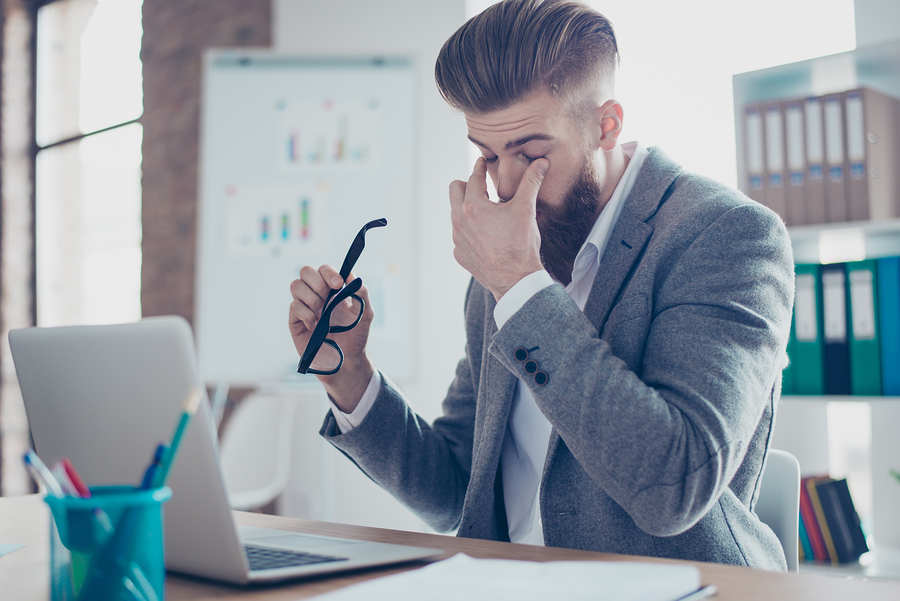- Make It Yourself Lavender Heart-Shaped Bath Bombs!
- 20 Things You Never Knew About “Down There”
- 12 Best Foods For Those Suffering From Arthritis Pain
- 12 Personal Hygiene Mistakes Almost Everyone Makes (Mom Never Told You About #4!)
- 15 Medicinal Plants And Herbs From The Cherokee People
- 12 Mind-Blowing Benefits Of Drinking Coconut Water During Pregnancy
- 12 Outstanding Winter Foods That Won’t Fatten You Up Like A Christmas Turkey
Dry Eyes: 6 Most Common Reasons Why You Have Them
Suffering with dry eyes is common at this time of the year with the lower temperatures, biting winds, and lack of moisture in the air. Symptoms of dry eyes include the feeling of having grit in your eyes, redness, itching blurry vision, feeling like there’s something stuck in your eye, photophobia (light sensitivity), and blurry vision. These symptoms can be both distracting and incredibly uncomfortable. However, there are several main reasons for dry eyes. In this article we explore them together along with the ways to treat them!
1. Allergens in the air.
Most common in spring time, excessive allergens in the air can cause the eyes to become irritated and dry out. The spike in allergens such as tree and bee pollen at this time of year has only recently been linked to the dry eye condition, but the relationship is clear. A fix for this cause could be wearing goggles if working outdoors and air filters for when you’re indoors.
RELATED: Bags Under The Eyes: Any Real Cures?
2. Frequent flying.
Many of us are frequent flyers these days, both for business and leisure. However, the extreme moisture-lacking and pressure-controlled nature of the air in the airplane cabin is a definite cause. There are several ways to combat the traveller’s dry eye (as they call it), including:
-
- Staying hydrated. This is absolutely crucial as it’s easy for the whole body to become dehydrated, especially on long-haul flights, causing the eyes to become uncomfortable. Try to take several gulps of water an hour – this has the added benefit of increasing toilet trips and so getting the blood flowing!
- Taking special hydrating eye drops with you on the flight to use whenever your eyes feel particularly irritated.
- Taking an eye mask to use when sleeping, this will protect your eyes from the dry air.
- Avoiding alcoholic and caffeinated drinks on the flight as these will simply serve to further dehydrate your body.
Continue to Page 2
3. Computer use.
Sitting in front of one or multiple computer screens is commonplace in our society, but constantly staring at screens can have negative effects and be a reason for dry eyes. The reason for this is because when looking at screens, where computers or smartphones, we forget to blink. This means our eyes receive less lubrication. Remember to take frequent screen breaks if your job involves a lot of computer-based work and drink water at regular intervals throughout the day.
4. Hormonal reasons for dry eyes.
As hormones plummet during a woman’s menopausal years, the body goes through several significant changes. One of the lesser known of these changes is dry eye syndrome. It is thought that the lower hormone levels affect the composition of the tears which lubricate the eye as well as the ocular tissue, combining to dry the eyes out. The best ways to avoid this kind of dry eye is maintain a good level of hydration, ensure a diet rich in omega-3 fatty acids which have been proven to beneficial for the eyes, and consult a medical professional should the problem persist.
RELATED: Time Spent Outside In Youth Can Affect Nearsightedness
5. Contact lenses.
One of the most common causes of dry eyes is the use of contact lenses. Many people use them in order to avoid wearing glasses, however the thin film-like nature of contact lenses over the eyes themselves prevent oxygen from reaching the eyes. However, there are special types of contact lenses available for wearers who commonly experience dry eyes as a result of their lenses, including silicone hydrogel lenses.
6. Indoor environments.
Air-conditioning and having the heating full on are two sure-fire ways of your indoor environment being a direct reason for your dry, uncomfortable eyes. This is because these heating and cooling systems suck the moisture out of the air and speed up tear evaporation causing the eyes to quickly become dry. A way around this is to avoid sudden changes in temperature in the home by not having cooling or heating systems on full blast. You can also try placing bowls of water around the home: As the water evaporates, it injects the missing moisture into the air.
Despite it being seemingly easy for your eyes to dry out, it’s thankfully equally as easy to overcome this uncomfortable condition and rehydrate the eyes. By always being mindful to the reasons for dry eyes, staying hydrated, and taking precautionary measures where necessary. You’ll go a long way to protect your eyes.
References:


































Wondering Woman
Jan 12, 2018 at 12:25 am
Personally find a 1-2 drops of castor oil in each eye once to twice a day to be very soothing whether for pink eye or minor eye injury. Discovered this one day when got a paper cut on eye and only relief from pain was to keep eye closed. Not wanting to drive 20+ miles with only one eye open, to find doctor to look at,searched my mind for what might be in the home safe to put in it after finding no relief whatever from artificial tears – and decided both Extra Virgin Olive oil and castor oil should both be safe, so tried the castor oil first and was delighted with the results. Used the castor oil again a few hours later at bedtime and delighted to awaken the next morning with my vision back to my normal and no pain at all.
Several months later relative got the pink eye and after spending a couple of hours on the phone to find a doctor that could see her, gave up and used the castor oil drops in her eye with the same results, Pain relieved within 5 minutes and redness completely gone with 30 minutes.